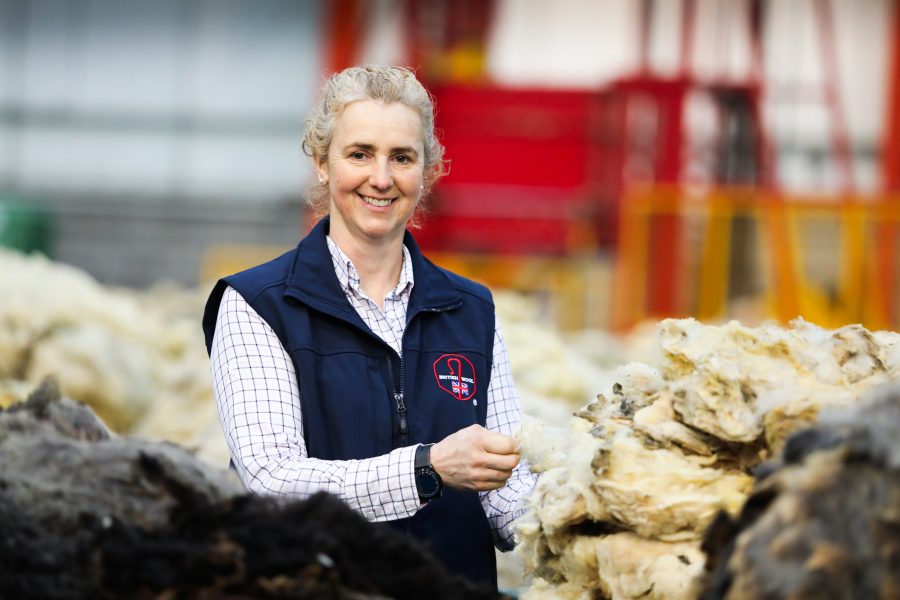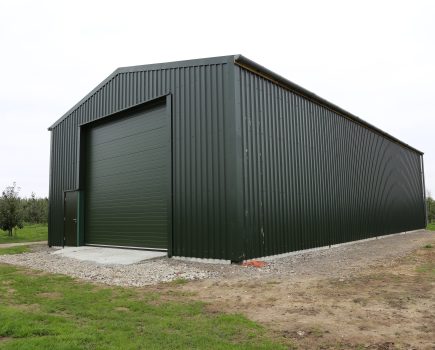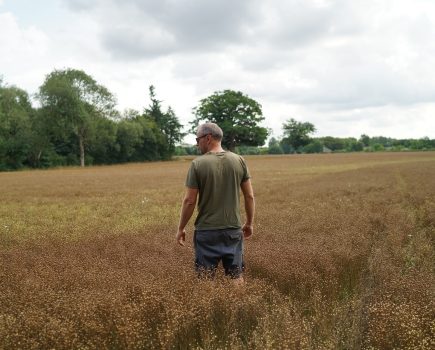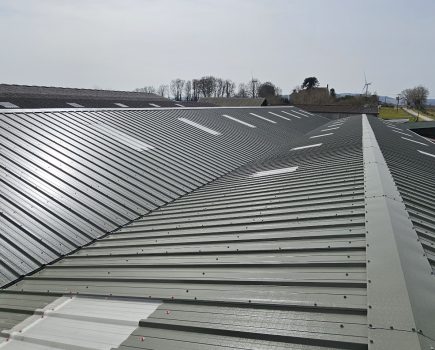Having been brought up on a smallholding in Alton, Hampshire, Susie Parish has been around sheep since a young age, with the pet lambs she kept as a young girl growing on to form the basis of a 50-head flock.
One year, Susie recalled, the shearer did not turn up to shear the sheep, so as a self-proclaimed ‘doer’, she set about with a pair of hand shears.
She said: “It was after organophosphate dips were banned and before the introduction of pour-ons, and the sheep were beginning to suffer with fly strike. I had a book which described how to shear a sheep, so my brother read bits to me while I worked away with a pair of shears.”
Having not been accepted on Sparsholt College’s shepherding course aged 17, Susie began working locally as a shepherd, mainly carrying out lambing work.
As her own shearing improved, she joined the Small Shepherds’ Club’s approved shearing list, and through this her own business grew.
It was while baling straw for husband and wife Emma and Neil Boyles that Susie’s next move was determined. Having recently purchased a farm, Emma and Neil asked Susie for some help with their ponies, a job to which she could also turn her hand. The couple were keen to buy some sheep, and as they had no previous experience, they required a shepherd, with Susie an obvious fit.
To begin with, a small flock of Southdowns was purchased for their teddy bear appearance. As time went on and Emma’s sheep knowledge grew, she couldn’t believe the lack of value in a sheep’s fleece and wanted to do something to add value to the product.
Wool was sent away to be spun, and Emma and Susie began experimenting with different methods of dying the fibre and formed The Grey Sheep Co.
Susie said: “The Southdown wool didn’t make a very good knitting wool. It consists of a short fibre so was more suited to carpet manufacturing.”
From there, Neil and Emma discovered the Gotland breed, which originates from the Swedish island of Gotland and has a lustrous fleece, ranging in colour from black through to silver.
Susie said: “We were the first to dye coloured wool. When it’s dyed, the natural colour brings a lot more tones to finished wool.”
These days, the farm is home to a 450-strong flock of both pure Gotlands and Stein, a crossbreed containing a lot of Merino blood which Susie and Emma have named and breed themselves.
In charge of the flock’s management, Susie said her main priority was keeping the sheep’s fleeces as clean as possible.
The flock is shorn at the end of December or early January to avoid straw and hay attaching to the fleece, before being brought inside to lamb. She also keeps on top of weeds in fields which might attach themselves to fleeces. She explained: “Keeping sheep in this way has been a huge learning curve.”
The Gotlands are shorn again at the end of May for a trim up which helps to strengthen their next full fleece, due to the difference in the way their wool grows.
Nowadays, wool from The Grey Sheep Co is shipped globally to home knitters or into wool shops.
A British Wool ambassador, Susie travels around shows supporting the British Wool team and helping to answer members’ questions. For a long time, she has also been the Hampshire representative for British Wool.
She said: “Since being an ambassador, I have learnt a lot about British Wool. It is so important for us as sheep farmers to have the organisation.
“Going to shows and promoting the uses of wool is really important to me. Wool has a monetary value, but it has a huge importance as a product. It’s great for the environment, and having already been produced by the sheep, it should be made use of.
“If British Wool were lost, there would be a lot of farmers with no outlet for their wool. British Wool supports the supply chain from collection to processing and marketing. The organisation needs volume to benefit from economies of scale.”
Still with her own shearing run of 6,000 sheep as well as alpacas and llamas, Susie was taken on by British Wool a number of years ago as the organisation’s first approved female shearing instructor.
She recalled: “I went on a shearing course to improve my shearing. There were so many people there, I ended up helping other participants on the course. At the end of the day, I was asked if I would consider being an instructor, which I have been ever since.”
Susie also enjoys sharing her knowledge with school children and has previously been livestreamed into schools while shearing a sheep as part of the NFU’s schools project, watched by more than 160,000 children. She has also carried out other school visits, and sometimes takes her sheepdog along with her.
“In these situations, whether talking to school kids or on the TV, the main message I want to get across is that shearing does not hurt the animal. That’s really important,” she said.
As the National Sheep Association’s South East Region chairman, since February, Susie works as part of a team to put on events and knowledge exchange opportunities in that area of the country.
Also an approved shearing judge, Susie has been more active as a competitor in recent times, competing at the major county shows.
Wool handling is her latest foray, and she has recently started competing as a novice, finishing second at the Royal Welsh Spring Festival this year.
She said: “There is a shortage of wool handling judges, and I would like to help out by becoming one. In order to do that successfully, I think it’s really important to compete first to truly understand the competition.”
Competing in blade shearing competitions, using a traditional pair of hand shears, is another passion of Susie’s, having won the intermediate blade shearing circuit last year. Machine shearing is also one of her disciplines and she has won the ladies’ competition at the Royal Welsh several times.
She concluded: “I am passionate about wool and shearing is where it all starts. I always want to give something back to the industry and being a British Wool ambassador, talking at schools and being a shearing instructor all allow me to do this.”
British Wool ambassador roles
- Promote the values of British Wool as an organisation and quality fibre
- Be an advocate for the organisation
- Promote the importance of British Wool’s role within the wool sector
- Promote the shearing and wool handling courses
- Promote the strong characteristics of British wool as a quality fibre.
For more like this, sign up for the FREE South East Farmer e-newsletter here and receive all the latest farming news, reviews and insight straight to your inbox.












